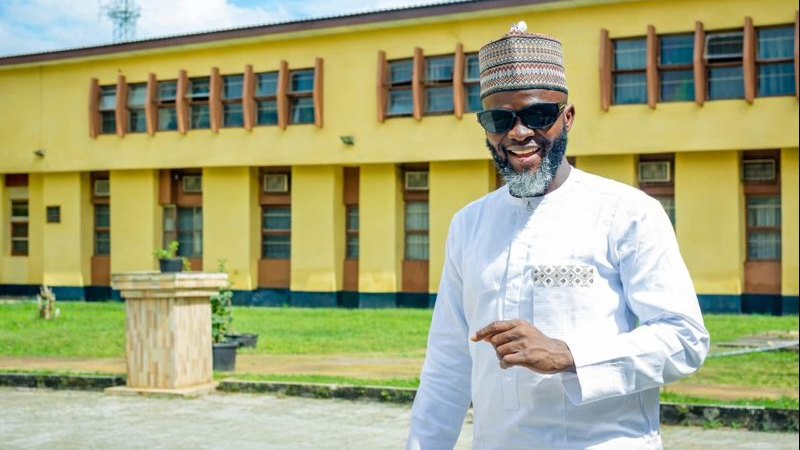Every Nigerian assumes he is an expert and would have opinions even in areas he scarcely knows anything about; that is why newsstands are better gossip centres than most markets, especially the free readers’ corner.
The opinions and notions that spew from such people and places are, at best, comic relief to those who understand—a reason that, after being exposed to such views, which quickly gain traction, listening to experts on the same issue is humbling. More so if one had ventured into the free readers’ submissions in the company of friends who respect him as knowledgeable and as someone they can rely on for a better understanding.
That is exactly what happened after our taxman, Zacch Adedeji, took an excursion into the concept of borrowing to fund a budget, as opposed to the street understanding of the same concept.
That excursion also birthed a new lexicon to our already bloated register. After explaining how budgeting and borrowing work globally, the erudite and cerebrally superlative Adedeji, apparently for lack of words to use in dismissing the roadside analyst without sounding abusive, described them as “container economists”—for either reducing the complicated and adroitly managed financial system to the ajo style of borrowing, or cocooning a global concept into a village understanding.
After breaking it down and giving live examples with structures around the group, a murmur of understanding erupted among those whose desire was to take Adedeji to task. In moments of extreme conviction, heads bobbed up and down, nodding in agreement and understanding.
Adedeji took time to explain that borrowing is a component of every budget and that it is a test of a virile economy in the global economic ecosystem, because every country that has a growing economy borrows for development and to test the vitality of the economy.
He said if a budget is projected for a certain amount and a particular amount is raised as revenue, the shortfall between revenue and expenditure would be raised as a loan to carry out development and meet the expected projections.
Again, he explained that borrowing is for sustainability and cutting down future expenditure, which may come with higher costs.
The taxman cited an example with the seat of power in Aso Rock, and explained that if money used to construct it was borrowed, the cost of finance then compared to now would show that it was cheaper to do so then than now. He further gave an example of borrowing to execute a futuristic project like a road, which he said those who will use it in future would pay their own contributions, as it was done ahead of time for them, so that it was meant to serve them and not mortgage their future.
He challenged everyone to state if there has ever been any borrowing to pay salaries or spend on frivolities—a reason he said both President Bola Tinubu and the Minister of Finance, Wale Edun, keep harping on sustainable borrowings.
Hear him: “Thank you for your good question because it is at the right time. Without trying to throw a jibe. What is the component of a budget of a country? You have your revenue, you have your income, and you have your expenditure, and you have loan. So if my expenditure for this year is N100,000 and my plan is that my revenue is N80 and I will borrow N20, and I have done revenue of N90, and I am borrowing according to what I have in the budget—I’m borrowing 10—so what’s the problem in that?
“Another thing people should understand is that borrowing is not a problem. Don’t forget that banks are part of our economic ecosystem. There is no country or individual in the world that doesn’t borrow. When individuals or government borrow from banks, you pay interest, and it is from that interest that they pay their salaries, it is from salaries that they pay taxes to states, and it is from their profits I collect taxes. So when you say you go for lending, that is why you hear ‘sustainable’ from Mr. President and the Minister of Finance. Have you ever heard of the Minister of Finance say he is borrowing to pay salary or do anything? And why do you do it? I give you a typical example with this structure, where we are. If it were not built the time it was built, how much would it have cost us today? So you borrow in order to beat higher cost. Secondly, we borrow to beat what we call matching concept in business, especially where you have continuity. Anything that you will use that will go beyond my lifetime, why should I use my time to do it? So when you build roads and you collect taxes in future from anybody that will be using it in future to pay their own fair share, so when you see us borrowing, it is part of economic plan. So when you see any country that wants to grow, you must borrow because that is part of an ecosystem of a viable nation. So when those people who are just container economists talk about they borrow, I just look at them.”
It will take eating the humble pie to drop the already hardened notions about the wrong concept of borrowing and begin to view our misunderstanding as palpable and pitiable.
With inflation dropping and huge reduction in lending costs from the Central Bank of Nigeria, one can’t help but watch as the results of the policy predictions are tallying figures with reality. Food inflation bowing to policies only shows that the economic team actually knows what they are doing.
No wonder the President had warned that there would be initial pains followed by gains. Many appointees of the government had voiced that the economy was in very bad shape before President Tinubu mounted the saddle. But with the results coming in, and the sure-footed expert touch to once bland areas of the economy, those who were stone in hand, shouting “away with the taxman” have replaced the stones with naira saved for them through well-thought-out, adroit policies matched with meticulous implementation. These have seen the country emerging from the economic woods into the sunlight of prosperity, which had eluded the country with poor leadership backed by emotional mouthing of prosperity without pointers.
With hands-on and sure-footed experts like Adedeji matching figures with actions and visible achievements, Nigerians will soon sing Eldorado. And for once, we should leave areas that deserve the touch of expertise to experts. Zacch Adedeji is right.
Obong is a Media and Communication Specialist, Accountability and Policy PR






